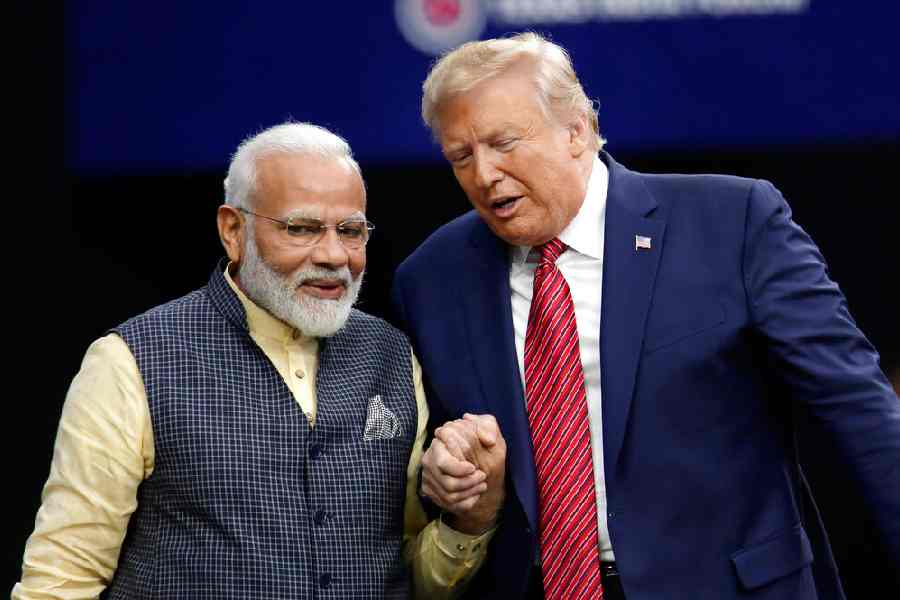COVERT: THE PSYCHOLOGY OF WAR AND PEACE
By A.S Dulat, Asad Durrani and Neil K. Aggarwal
HarperCollins, Rs 699
That former heads of the Indian Research and Analysis Wing and Pakistan’s Inter-Services Intelligence can sit together for a cordial conversation is sufficiently novel to become a formula for literary success. Both A.S. Dulat and General Asad Durrani are the authors of well-written memoirs with fairly frank reflections about their service tenures. Yet, it was their conversation, published in 2018 as The Spy Chronicles, about the differences and the conflicts between India and Pakistan, that gathered a
certain notoriety.
This is for obvious reasons. In each country, the other’s intelligence agency is credited with extraordinary capacities and insights. Their parallel demonisation over the decades has meant that a joint enterprise by the former chiefs of R&AW and ISI would agitate their respective national establishments, which frown upon such familiarity even though the ensuing hullabaloo was greater in Pakistan. Those controversies have since quietened down; in fact, the former ISI and R&AW heads were just having a cosy and comfortable conversation and there was nothing in the book that was, in substantive terms, in breach of the virtually identical official secrets codes of both countries. Neither did it yield anything that could embarrass the governments concerned.
That book’s success was also on account of the fact that both Dulat and Durrani are practised raconteurs and kept the reader engrossed in a conversation that was largely about the past. Durrani headed the ISI in 1990-91 and Dulat’s tenure in R&AW was about a decade later. Yet so little has changed in the India-Pakistan terrain in the past quarter century that their conversation had a sufficiently contemporary ring to it.
Covert, the new volume of this India-Pakistan enterprise, picks up much of the same threads. It draws attention because, as was the case with its predecessor, we have here committed former adversaries introspecting on and analysing the bilateral situation alongside much friendly banter at a time when there is a virtual freeze in diplomacy between the two countries.
The new feature in Covert is that the latest Dulat-Durrani conversation is moderated and anchored by Neil K. Aggarwal, a US-based psychiatrist: hence the somewhat grandiose subtitle, “The Psychology of War and Peace”. The aims of the book — which is in essence a three-way conversation — are: “(1) using psychiatry and psychology to understand conflict, intelligence and peacemaking; and (2) offering specific, practical strategies for peace building between India and Pakistan.”
The structure of the book involves Dulat and Durrani responding to questions and themes outlined by Aggarwal. This three-way conversation covers a wide canvas, beginning with the childhood and early years of the two protagonists; this to investigate whether there is anything in their upbringing, their childhood or family backgrounds that made them into “peacemakers”. The short answer is no. In Durrani’s case, the transition was, as he puts it, a natural, almost inevitable, one: “It’s a universal phenomenon. Retired military officers, after having dealt with guns all their lives, ask if there is anything else they can do.” For Dulat, the answer lies in his less-than-two-year Kashmir posting: “I realized that the answer to Kashmir can only come through engagement, dialogue and peacemaking. It will not come through the barrel of the gun.”
Apart from Kashmir, this conversation ranges over numerous other issues broadly within the India-Pakistan terrain — bilateral tensions, strategic mistrust and how it can be addressed, trade, Afghanistan, Bollywood, cricket and so on. For the discerning reader, once the novelty of the ISI-R&AW conversation wears off, this cordial banter over a wide range of issues may appear somewhat thinly spread and lacking in specifics. At times, it also appears that maintaining the cordiality of the conversation requires touching really divisive issues very lightly.
Notwithstanding this, there are useful takeaways. At one point, Durrani suggests an option that appears to have numerous possibilities; subregionalisation — expanding the scope of cooperation between the two halves of Punjab, Kashmir or between Sindh and Rajasthan. Similarly, there is Dulat’s insistence on “empathy” — recognising that the other side has a point of view. To cynics, this may well appear to be an old bromide but it is invaluable in the present India-Pakistan desert.











